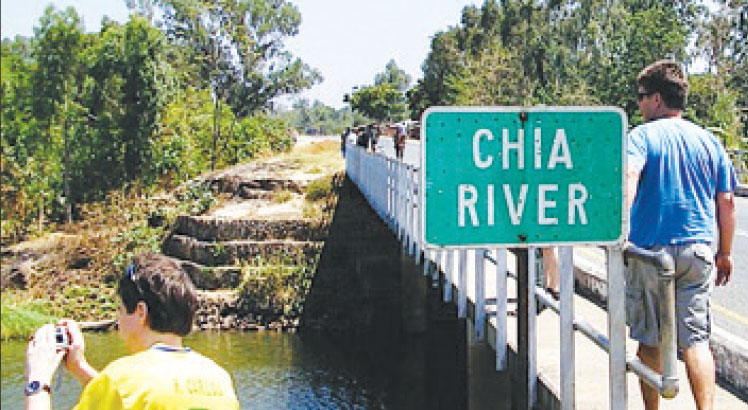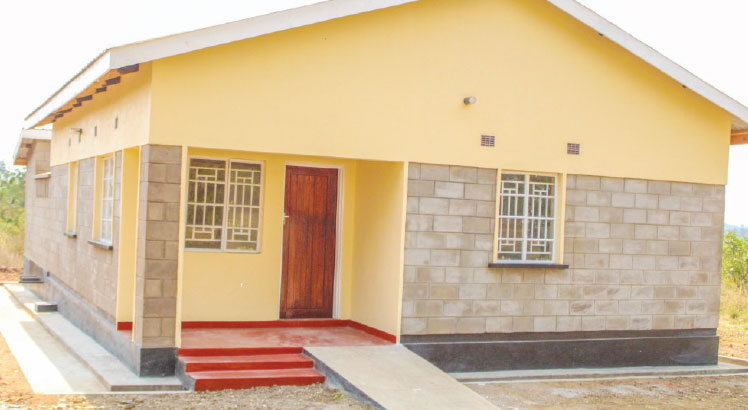For Traditional Authority (T/As) Kalimanjira, Chia Lagoon is the pride of his territory and a prized part of his life.
The water body close to Lake Malawi in Nkhotakota District was once a place teeming with diverse fish and bird species, a picture-ready spot where nature and humanity coexisted harmoniously.
But looking at the lagoon today, wrinkles of melancholy swamp the traditional authority’s voice as he reflects on the degraded landscape around the lagoon which has lost its splendour.
“This beauty used to play host different species of stunning birds and wild animals. We had fish, but the catches have fallen dramatically. We had hippos in the lagoon, but now you can’t even find one. Human pressure is really at odds with nature,” he laments.
Amid this struggle between human beings and nature, a ray of hope is rising.
Wildlife and Environmental Society of Malawi (Wesm) is working with Nkhotakota District Council to restore the biodiversity and glory of the largest lagoon in Malawi.
The Chia Lagoon Water Bird Project is funded by the UK-based Dawn Initiative to the tune of K312 million.
Wesm is working closely with the local communities surrounding the lagoon to restore degraded landscapes and endangered biodiversity, reverse the decline of vulnerable bird species and improve the lives of people who call the wetland home.
Tourists watch the country’s largest lagoon from Chia Bridge in Nkhotakota
The ambitious initiative includes the establishment of sustainable hunting groups and bird sanctuaries in target communities.
The change agents also seek to bring back vital habitats and collect crucial data about a diversity of living things in Chia Lagoon and its surroundings for monitoring and decision-making.
“I am so excited about this project. We have species like mpheta, nkhulukudzu, mphapi and nkhwazi. If taken care of, Chia will be beautiful again,” says Wesm board member Victor Mangochi.
He is also the chairperson of the conservation society in Dwangwa branch.
“Unless communities surrounding Chia Lagoon understand the benefits of protecting the birds in their ecosystem, our children won’t appreciate this nature. Communities need to play their part in protecting the bird species,” says Mangochi.
Nkhotakota district director of administration Victor Chithabwa pledges the council’s support to roll back environmental degradation and the loss of biodiversity.
“There will be a number of activities which will create employment, provide soft loans to empower the community and reduce over-reliance on the environment. We need to conserve these birds because they make the place beautiful,” he says.
Chia Lagoon is located close to Nkhotakota Wildlife Reserve, off the shoreline of Lake Malawi.
The lagoon covers an impressive 17 square kilometres (km) in the middle of a watershed stretching 989 square km.
The lagoon supports 7 857 households, including farmers, the fisher folk and birders.
However, it is under threat due to unsustainable use and management of natural resources amid harsh effects of climate change, including water stress as well as worsening hunger and poverty.
Despite its relevance to both the local and national economy, Chia Lagoon is not gazetted as a protected area, leaving its bird and fish species vulnerable to unregulated tendencies.
Local communities, with seven in 10 people living at or below the poverty line, rely heavily on the shrinking natural resources for sustenance and income. Most of them survive on fishing, hunting, and farming.
The restoration initiative targets at least 14 000 in nine villages in T/As Mwadzama, Kalimanjira and Nkhanga around the lagoon.
Wesm will partners with the council, Ministry of Natural Resources and Climate Change through the departments of Fisheries, Environmental Affairs, Tourism and National Parks and Wildlife.
Other partners include the Malawi University of Science and Technology, Micro Loan Foundation, African Parks and Ripple Africa.
The project rolled out in June this year and is expected to wind up in March 2026.
The post Restoring splendour,birds of Chia Lagoon appeared first on The Nation Online.
 Moni Malawi
Moni Malawi 

